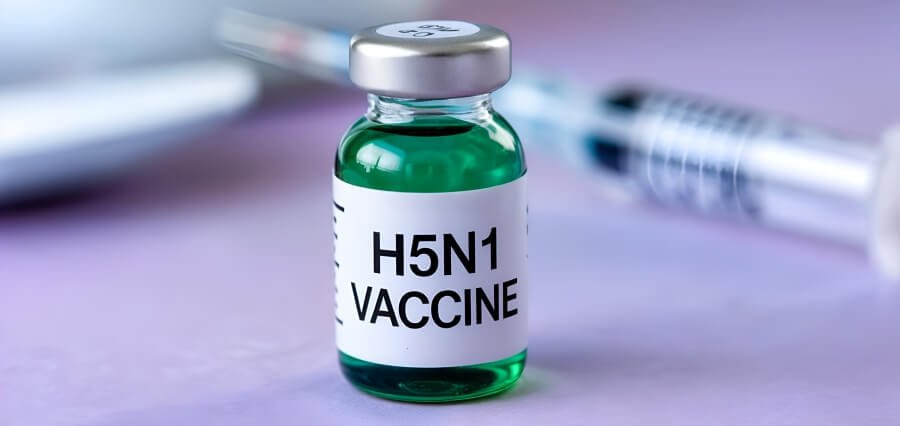Prime Highlights:
Canada has purchased 500,000 doses of H5N1 avian influenza vaccine for individuals at high risk of exposure.
The vaccine, GSK’s Arepanrix H5N1 A/America, was secured through an existing agreement by the Public Health Agency of Canada (PHAC).
While the public risk remains low, those with higher exposure, such as poultry workers, are at increased risk.
Key Background:
In response to the ongoing spread of H5N1 avian influenza among poultry and waterfowl in Canada, the federal government has announced the purchase of 500,000 doses of a human vaccine to protect individuals most at risk of exposure to the virus. The vaccine, GSK’s Arepanrix H5N1 A/America, has been secured through an existing agreement by the Public Health Agency of Canada (PHAC).
While the agency emphasized that the overall risk to the general public remains low, it stated that individuals with higher exposure to infected animals, such as poultry farm workers, are at an increased risk and should take proper precautions. PHAC confirmed that 60% of the available doses will be distributed to provinces and territories, with the remainder stored for national preparedness. Provinces and territories will determine when to deploy the vaccine, expected to be available in the coming weeks.
The move comes after Canada reported its first domestically acquired human case of avian influenza in November 2024. A teen patient in British Columbia required extensive respiratory support but eventually recovered. The B.C. Centre for Disease Control is currently comparing the strain found in the Canadian case with a similar strain in Louisiana, which resulted in a fatality. Experts are examining genetic mutations that may increase the virus’s ability to infect humans.
Although there is no evidence of sustained person-to-person transmission globally, health officials remain vigilant due to the pandemic potential of H5N1 and other influenza viruses. Since April 2024, nearly 70 people in the U.S. have contracted H5N1, with one fatality. The virus has also affected millions of birds worldwide and spread to non-human mammals, heightening concerns about its potential for wider transmission. The U.S. has also taken steps to stockpile vaccines for both humans and poultry in light of these developments. The National Advisory Committee on Immunization in Canada has issued preliminary guidance on using the vaccine in a non-pandemic context.










